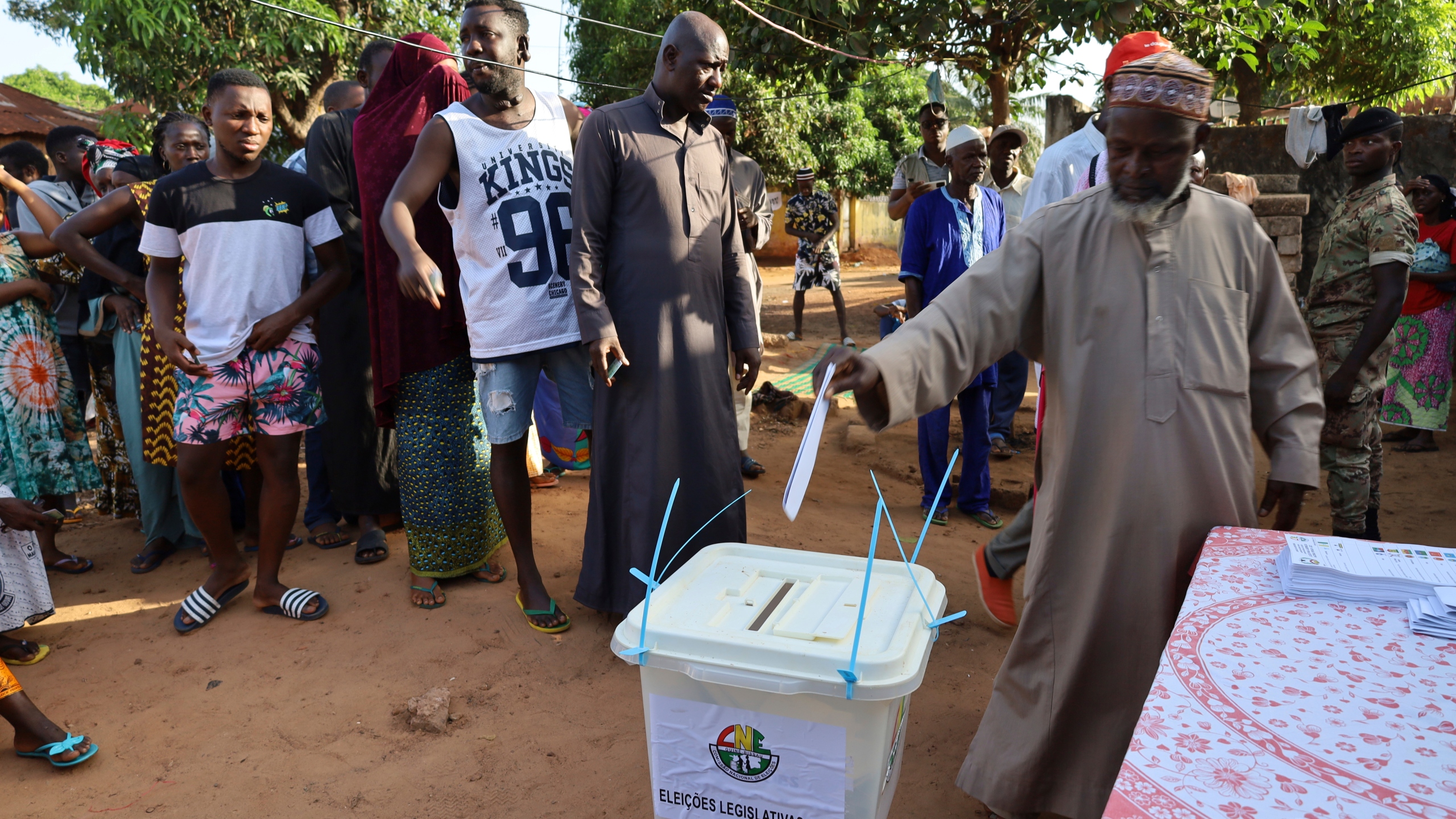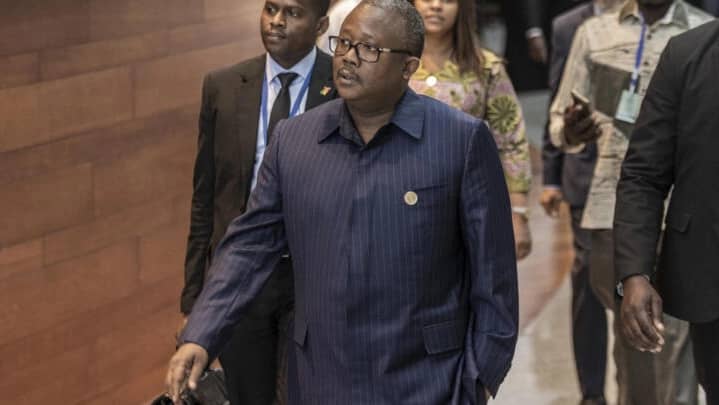More than a year after the president of the West African country dissolved parliament, Bissau-Guineans cast ballots in the eagerly awaited election to fill the national legislature of Guinea-Bissau on Sunday.
On February 19, 2023, President Umaro Sissoco Embalo of Guinea-Bissau arrives at the Africa Union’s headquarters in Addis Abeba.
According to the African human rights group Centre for Democracy and Development, about 1 million voters were registered to elect more than 100 parliamentarians from six parties with active seats in the National People’s Assembly.

Guinea-Bissau is a tiny country that became independent from Portugal about fifty years ago. Since then, there has been ongoing political unrest in the nation, including several coups.
After being crowned the victor of a runoff election in December 2019, former army commander Umaro Sissoco Embalo assumed the government. When attackers carrying AK-47s and machine guns assaulted the government palace in February 2022, he managed to escape.

Analysts claim that since taking office, Embalo has significantly reduced civil liberties while also significantly reducing the independence of government institutions. In May 2022, he called for the dissolution of parliament and postponed the December 2022 parliamentary elections.
According to Lucia Bird Ruiz Benitez de Lugo, director of the Global Initiative Against Transnational Organized Crime’s West Africa Observatory


